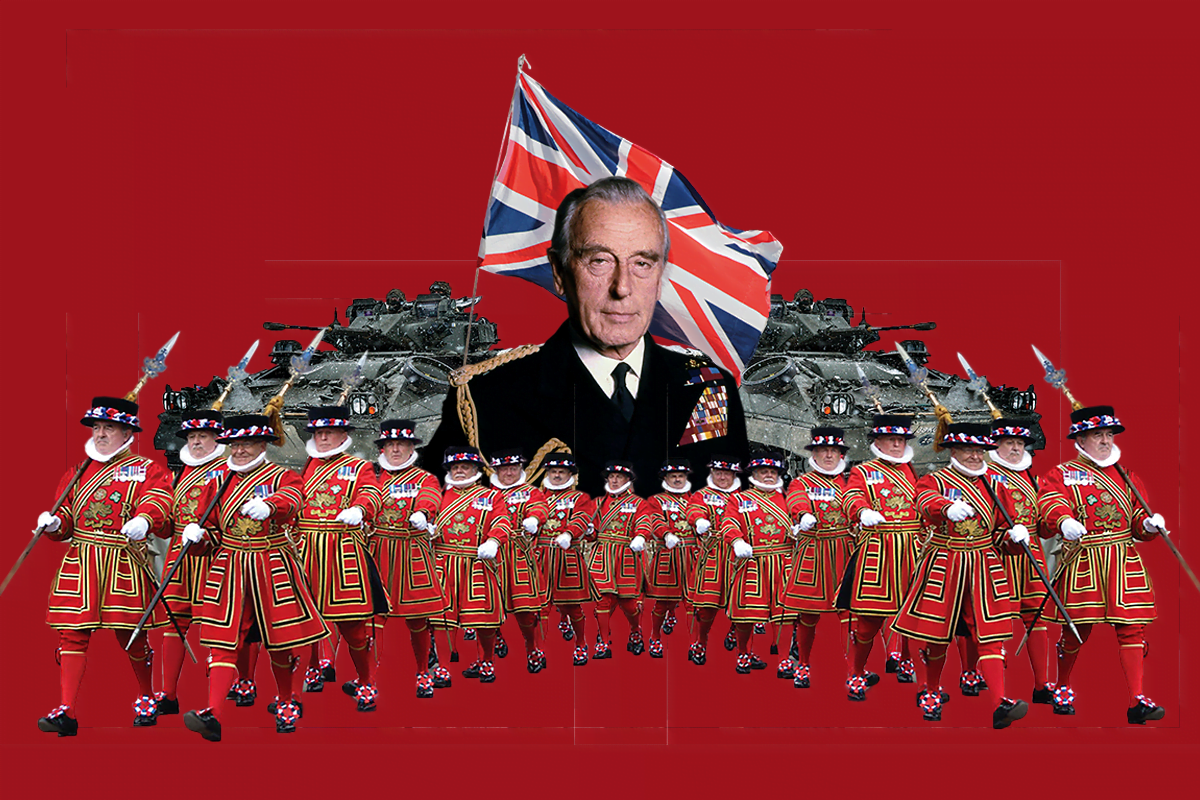More than 50 years ago, in 1977, in fact at the time of the investiture of Prince Charles as the Prince of Wales, a very interesting book was published by the Tory strategist Ian Gilmour, entitled Inside Right.
In its pages, Gilmour fretted that the institutions of the state were being steadily undermined, which in turn was a reflection of the serious decline of British capitalism. The exception, Gilmour stated, was the British monarchy.
As a solution, Gilmour toyed with the idea of strengthening the House of Lords, but saw the limits to this suggestion. “A second chamber is not much of a bulwark against a revolution,” he admitted. “The only sure way to prevent a revolution is to prevent a revolutionary situation arising. And a rejuvenated House of Lords would be little help in that.” (Inside Right, p.214)
If Gilmour had written his book today, he would have arrived at the conclusion that all the state institutions of capitalism were now in a state of crisis, including the monarchy. Stability has turned into instability, a reflection of the impasse and crisis inflicting Britain.
Reserve weapon
 Gilmore highlighted the importance of the monarchy to the maintenance of the capitalist order. “The monarchy is one of the few British institutions that is working well, and Conservatives revere it as the symbol of national unity and continuity…”
Gilmore highlighted the importance of the monarchy to the maintenance of the capitalist order. “The monarchy is one of the few British institutions that is working well, and Conservatives revere it as the symbol of national unity and continuity…”
In a throwaway remark, he states: “In any case it has no political power, and its constitutional power is held in reserve.” (p.146, our emphasis)
But this says a lot. It is precisely these special “reserve powers” of the monarchy that pose a direct threat to any radical Labour government and those who wish to change society.
You hear much from republican advocates that their opposition to the Crown is that it costs a massive amount and is a symbol of privilege. All of this is true, but it fails to understand the real significance of the British monarchy as a reserve weapon of the ruling class.
Even many on the left fail to understand this crucial point and fail to bring out the real role of monarchy.
Gilmour correctly explained the role of monarchy as the guardian of the status quo: “Besides, while there is dispute as to the exact nature and extent of the monarchy’s powers today, she remains the guardian of the constitution. If a government behaved unconstitutionally, the Queen would be under no compulsion to behave as King Victor Emmanuel with Mussolini and meekly acquiesce in the establishment of a dictatorship.” (p.81)
But for Gilmour, dictatorship is synonymous with revolution.
Later in the book, Gilmour theorises about conditions where, to preserve order, democracy in fact could be done away with by the state. He quotes Edmund Burke that “numbers in a state are always of consideration, but they are not the whole consideration.” And in the words of Dr Hayek, democracy “is not an ultimate or absolute value and must be judged by what it will achieve.” (p.211)
Powers
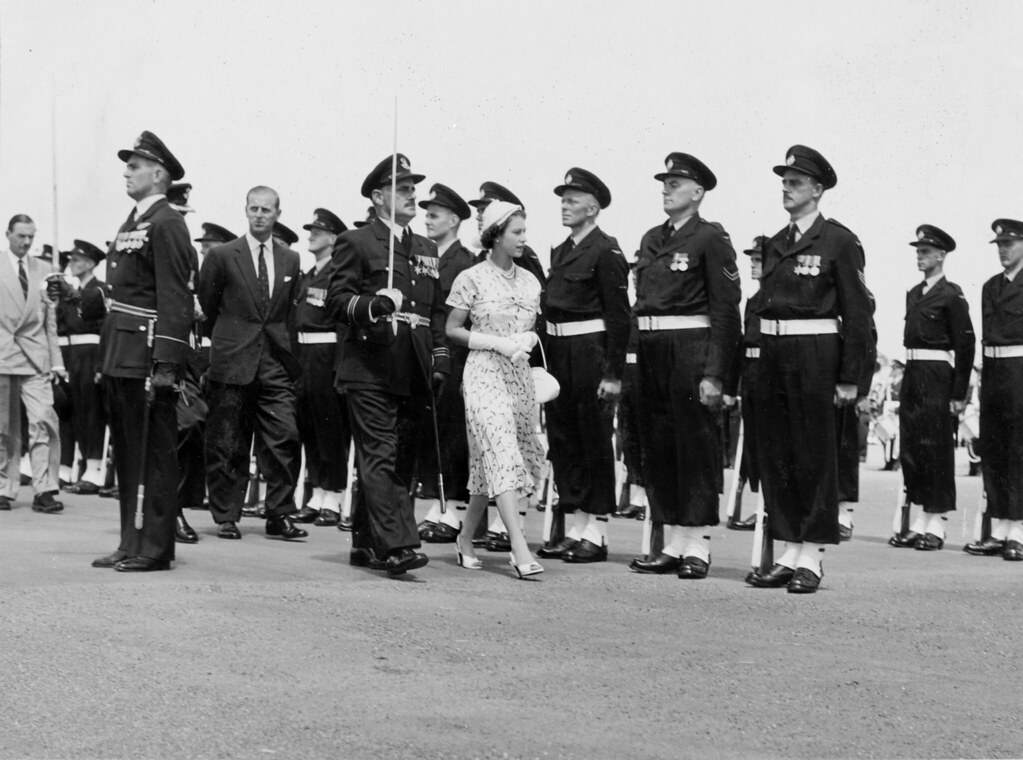 The British monarch’s reserve powers are a closely guarded secret.
The British monarch’s reserve powers are a closely guarded secret.
Crown Privilege gives the Crown (i.e. the state) power to withhold documentary evidence from any court. In Britain, there is no written constitution. It is based on parliamentary statute as well as on convention and judicial decision.
The common belief is that the state is neutral and acts for the benefit of all, which clearly is not the case. It represents the interests of capitalism. The state, explained Engels, can be reduced to armed bodies of men in defence of private property.
It is also no accident that the Queen is regarded as ‘above politics’. The monarchy is anointed with an aura of ‘mystique’, independent of classes. It supposedly represents ‘the nation’.
Therefore, the armed forces swear their allegiance to the Crown, and not to parliament. The Crown has a prerogative power to direct the use of troops. The armed forces are responsible to the Crown under Queen’s Regulations. Under the Incitement to Disaffection Act of 1934, it is illegal to seduce a soldier from their duty and their allegiance to the Crown.
The common law duties of the armed forces are to maintain law and order. The Manual of Military Law defines five situations in which the military may be called to aid the civil powers: 1) a national emergency (under the Emergency Powers Act 1920); 2) where there is intimidation of workers (under the Conspiracy and Protection of Property Act 1875, as amended by the Trades Dispute Act 1906); 3) where there is an unlawful assembly; 4) where there is a riot (under the 1714 Riot Act); and 5) where there is an insurrection.
The Manual defines the last category, an insurrection, as involving “an intention to ‘levy war against the Queen’, as it is technically called, or otherwise to act in general defiance of the government of the country.”
In other words, the military has a duty to act in these situations.
Also, independently, the Crown or government can suspend normal law and institute martial law, where authority rests with the military.
This could be defined in the words of Charles Douglas-Home in The Times as “a state of affairs where normal legal administration is impossible and the only authority left is the military commander.” (The Times, 16 August 1974, quoted in Bunyan, The Political Police in Britain, p.276)
The British government is regarded as ‘Her Majesty’s government’ as well as ‘Her Majesty’s Opposition’. The monarch has the power to appoint and dismiss the prime minister.
This in fact was done in Australia in 1975, where the Labour government of Gough Whitlam was dismissed and the Opposition Liberal leader installed as the prime minister. There was no election or democratic vote. This was all done through the Governor-General, the Queen’s representative, using the Crown’s Prerogative.
Military dictatorship
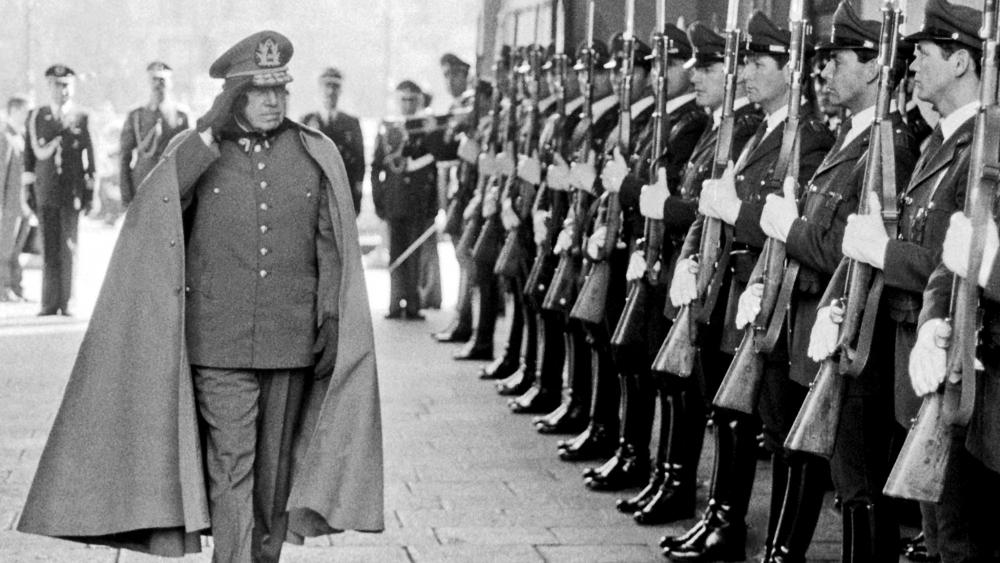 There were loud noises in the hierarchy of the British armed forces who warned of a potential coup against a possible Labour government under Jeremy Corbyn.
There were loud noises in the hierarchy of the British armed forces who warned of a potential coup against a possible Labour government under Jeremy Corbyn.
This was not the first time. Similar threats were made against Tony Benn, if he were to replace Callaghan as party leader. And yet the reformist politicians draw no conclusions from this and continue to support the monarchy as if it were nothing more than a glorious tradition.
‘Democracy’ is fine for the establishment, as long as it delivers the correct results – the guarantee of the wellbeing of capitalism and the ruling class. As Gilmour explained, if a left-wing government threatened the constitution, then the powers that be could justifiably end democracy.
The British ruling class, after all, gave support to dictatorships all around the world. Many of them admired the regimes of Mussolini and Hitler in the 1930s.
Thatcher admired the Chilean Junta under General Pinochet, with which she maintained friendly relations. The Times newspaper justified the coup in the following way: “The circumstances were such that a reasonable military man could in good faith have thought it his constitutional duty to intervene.” (The Times, 15/9/73).
If push came to shove in Britain, the ruling class, resting on the armed forces, would willingly establish a military dictatorship to prevent the threat of a socialist revolution. The monarchy would play its role in this by using its reserve powers to ‘uphold the constitution’.
“It is also not impossible that a future monarch – or even the present one – might play a role similar to that played by George V in the formation of the ‘National’ Government of 1931”, wrote A.H. Hanson and Malcolm Walles in their book Governing Britain.
“There are even some who still think of the monarch as the ultimate ‘guardian of the constitution’, equipped with powers which, although normally dormant, might be revived in circumstances of serious constitutional crisis or incipient revolution.” (p.13-14)
A very British coup
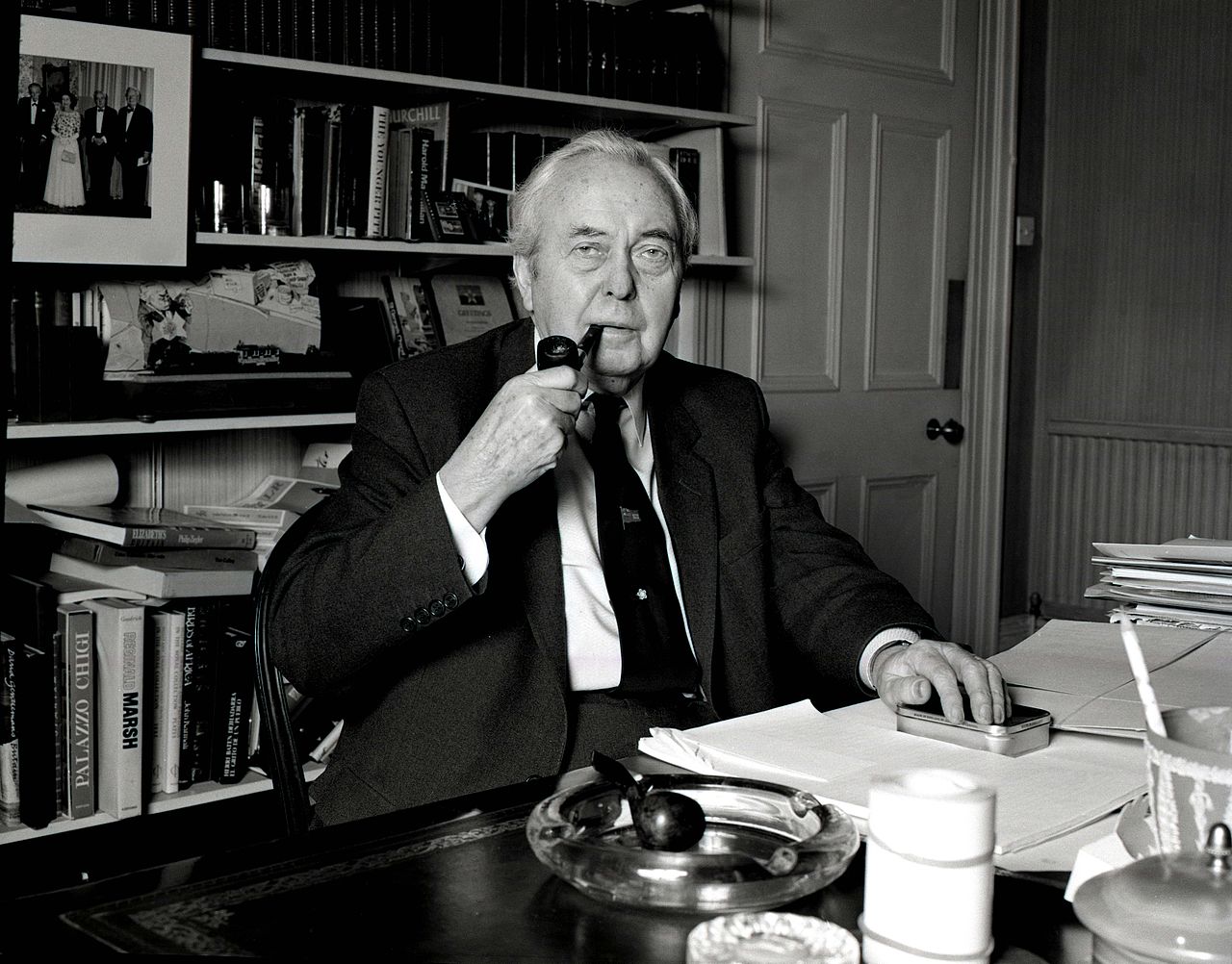 There are those who dismiss the very idea of a possible coup in Britain. ‘How could such a thing happen here?’ But this is to pull the wool over our eyes. In fact there have been three occasions of serious discussions about a coup by military tops and representatives of big business in Britain over the last 50 years: 1968, 1974 and 1979.
There are those who dismiss the very idea of a possible coup in Britain. ‘How could such a thing happen here?’ But this is to pull the wool over our eyes. In fact there have been three occasions of serious discussions about a coup by military tops and representatives of big business in Britain over the last 50 years: 1968, 1974 and 1979.
In 1968, there were plans to launch a coup in Britain in which a military regime under Lord Mountbatten would be established. The previous year the Greek generals had successfully established a military government in Athens.
This plot was dramatised recently on television. Remarkably, I think for the first time ever on radio or television, the real reserve powers of the monarchy were graphically revealed. This was in the third season of the series The Crown, shown on Netflix.
As a result, The Crown certainly deserves attention. No wonder the Royalist establishment demanded that this series be given a ‘health warning’, stating that it was simply a work of fiction, and nothing more. But it was a lot more. It certainly hit a raw nerve in exposing some of the realities surrounding the British Royal Family.
We are referring to the 5th episode of season three, fittingly entitled “Coup”. It relates to the plans of a real coup that were hatched in 1967-68, which involved Cecil King, the chairman of the Mirror Group and director of the Bank of England, and Lord Mountbatten, the cousin to the Queen.
You may say that the episode is based on journalistic sensationalism and speculation, but in fact it is extremely well researched. It is clear that it not only draws extensively on the constitutional work of Walter Bagehot, but also the memoirs of Cecil King and others associated with the plot.
Britain was facing a serious economic crisis, industrial unrest, and the devaluation of the pound. There was great dissatisfaction in the ruling class, which felt the decline of British capitalism. Jim Angleton, the head of the CIA’s Counterintelligence Division, had told MI5 that Wilson was a Soviet agent.
Lord Mountbatten was the Chief of Defence Staff until 1965, when his opposition to the Wilson Labour government’s defence cuts led to his retirement.
The programme shows Mountbatten addressing his old comrades of the top military brass, where he outlined his dissatisfaction, railing against “decline, irrelevance and devaluation of sterling”. Cecil King, who is present, asks Mountbatten for a meeting with like minded supporters, saying “this country needs a great man to lead it”. The meeting is arranged in Threadneedle Street at the Bank of England.
‘Legitimacy’
At the meeting, King and others outline a plan for a coup to put the country back on track. They believe an “emergency” government could unite the country. “We need a revolution by businessmen, bankers and the armed forces that could save us from amateurs, incompetence and Russian infiltration,” states Cecil King.
A new meeting takes place, where Lord Mountbatten weighs up the possibilities of success:
“Gentlemen, in the past decade alone, there have been, by my reckoning, 73 coups in 46 different countries around the world. And the success of some of these might engage us.”
“What all successful insurgencies have in common are five key elements: control of the media, control of the economy, capture of administration targets, for which you need the fourth element, the loyalty of the military.”
“Now in Ghana and Gabon, this can be achieved with a handful of battalions, but here, in the United Kingdom, they would need to secure Parliament, Whitehall, the Ministry of Defence, the Cabinet Office, the Prime Minister would be arrested, of course, along with other politicians still loyal. We would have to shut down the airports… Air traffic control … Same with the train stations. Curfew would be put in place, martial law declared. And I have not mentioned the police…”
“It would take tens of thousands of unquestioning, loyal servicemen and even in my heyday I could never command that.”
There is a pause. “Which brings me to the fifth element: legitimacy.”
“Now our government draws its strength from long established institutions that support it: the courts, the body of common laws, the constitution. For any action against the state to succeed you would need to overthrow these as well. In a highly evolved democracy such as ours, their authority is sacrosanct. Which is why, gentlemen, a coup d’etat in the United Kingdom doesn’t stand a chance.”
Then there is another pause. “Unless, we had the support of the one person not yet mentioned.” The scene then cuts to Queen Elisabeth.
Mountbatten then continues: “The Crown has at its disposal unique constitutional powers which can still make something like this possible. In 1834, William lV used them to dismiss his government in face of opposition from the House. And in 1920, the Emergency Powers Act was passed which gave the sovereign powers in certain circumstances to declare a state of emergency by proclamation.”
“Meaning our Queen could dissolve Parliament and appoint a new government and prime minister as well. She is also Commandeering Chief of the Armed Forces. They swear allegiance to her and not to Parliament, so could count on their support to see it through. She is our Caesar.”
According to the programme, Harold Wilson was tipped off. He contacts the Queen, who is horrified at the story. The coup plot therefore fails.
But this is not fiction.
Cover-up
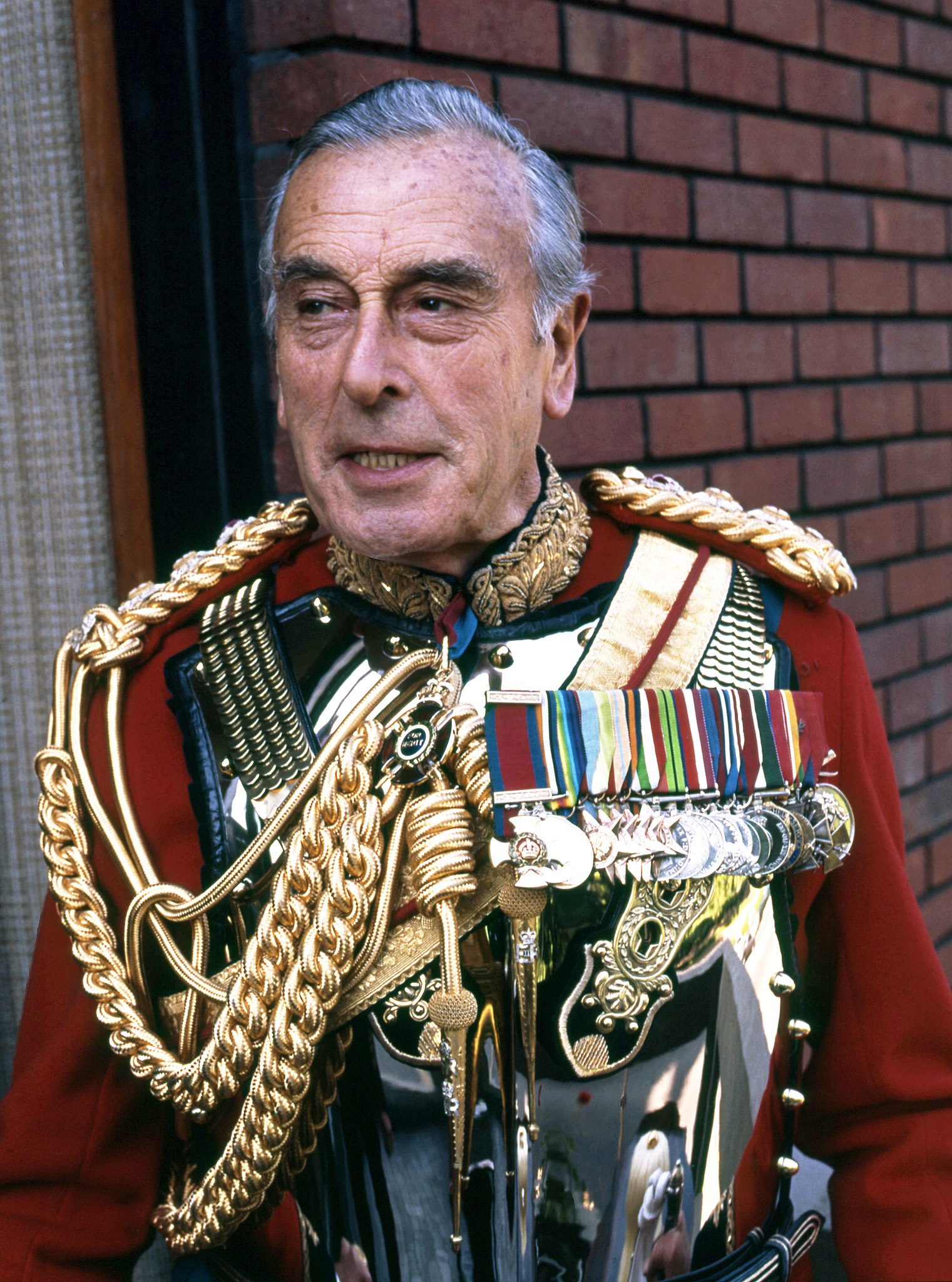 In March 1981, The Sunday Times published an article which revealed preparations for a military coup in Britain in 1968. It quotes the memoirs of Hugh Cudlipp, the Mirror’s editorial director, who was present and revealed the conspiracy. But this was later covered up.
In March 1981, The Sunday Times published an article which revealed preparations for a military coup in Britain in 1968. It quotes the memoirs of Hugh Cudlipp, the Mirror’s editorial director, who was present and revealed the conspiracy. But this was later covered up.
According to Andrew Lownie, author of a new book The Mountbattens: Their Lives and Loves, “[Lord Mountbatten] was far more involved than he or other collaborators publicly stated”.
When King approached Mountbatten, the Lord stated that “talent and administrative ability which does not exist in Parliament must be harnessed. Perhaps there should be something like the Emergency Committee I ran in India.”
Apparently, the meeting with Cecil King and other conspirators did not take place at the Bank of England, but at his home on 8 May. According to Cudlipp’s autobiography, King asked Moutbatten if he would “agree to be the titular head of a new administration”, to which Zuckerman (King’s unofficial advisor) responded by getting up to leave, saying: “This is rank treachery. All this talk of machine guns at street corners is appalling. I am a public servant and will have nothing to do with it. Nor should you, Dickie [Moutbatten’s nickname].” They then all left.
But this account was challenged later by King. He gave a different version and released his diary entry for the meeting. “Dickie does not really have his ear to the ground or understand politics. After Solly had gone, Mountbatten said he had been lunching at Horse Guards and that the morale in the armed forces had never been so low. He said the Queen was receiving an unprecedented number of petitions, all of which have to be passed on to the Home Office. According to Dickie, she is desperately worried over the whole situation.”
In Zuckerman’s private papers there is a note that suggests that the conspirators had agreed a public version of events to cover their tracks: “All I hope is that Dickie did not go beyond what we had agreed. The fact of the matter is – as Hugh Cudlipp knows only too well – that Dickie was really intrigued by Cecil King’s suggestion that he should become the boss man of a ‘government’…”
“When I saw Dickie at Prince Philip’s dinner party on 17th November, three nights after I started to dictate this note, he seemed very pleased with himself and thought the whole matter was settled – once again implying that his record of what had happened in an event would be the statement which history would accept.”
Harmless?
 Of course, talk of coup plans involving businessmen and military figures is very much kept under wraps. Everything would be hushed up. Even the Labour leaders, like Denis Healey, dismissed the idea.
Of course, talk of coup plans involving businessmen and military figures is very much kept under wraps. Everything would be hushed up. Even the Labour leaders, like Denis Healey, dismissed the idea.
However, the more they deny it, the more comes out. Various leaks clearly indicate that such plans were discussed.
The really interesting thing, deliberately kept quiet, was the involvement of the Palace. It is this particular aspect that is brought out graphically in the Netflix series, The Crown.
The central figure, Lord Mountbatten, was part of the Royal Family, the uncle of the Queen’s consort, Prince Philip. It is clear that the only reason why the 1968 coup failed was because the Queen was not prepared to use her reserve powers at this time. The time was not right. The balance of forces in society would have led to a massive backlash, undermining the monarchy and discrediting any future role.
This was illustrated by the Greek generals’ coup in 1967 which collapsed in 1974 and provoked a revolutionary upheaval. It was only the treacherous role of the leaders of the workers’ parties that prevented the overthrow of Greek capitalism.
British capitalism is in sharp decline, and its two major parties have been rocked by crises and splits. Austerity will not only continue for a long time, but become much more brutal.
In this context, Britain will be convulsed by revolutionary crises. There will come a time when the monarchy will be used to rally the old order, and its reserve powers brought into play to galvanise the forces of counterrevolution in an attempted British coup.
For these reasons, the British labour movement can afford no illusions as to the ‘harmless’ character of the monarchy. Instead, the abolition of the monarchy must form a part of the socialist programme the labour movement needs.

